we're here for you
Let Us Fight For you
Our primary objective is to protect your legal rights and to secure the best possible outcome in your case. We posses an in-depth knowledge of criminal law and procedure, and we work tirelessly to defend you against charges ranging from minor misdemeanors to serious felonies. Through our skill and expertise, we play a critical role in safeguarding your constitutional rights and upholding the principles of justice in our society. Fill out a form or call us at (718) 715-4845 to discuss your case today.
Our seasoned team of experienced attorneys is committed to protecting your rights and providing top-notch legal advocacy. Whether you are facing charges for DUI, drug offenses, white-collar crimes, or any other criminal matter, our firm is well-equipped to navigate the complexities of the legal system and offer you a strong defense strategy tailored to your unique case. With a track record of success and a relentless pursuit of justice, Rosenberg Law is your steadfast ally in safeguarding your freedom and securing the best possible outcome for your legal challenges. Learn more about where we specialize and how we can fight for you below.
Federal criminal defense refers to the area of law that focuses on defending individuals who are accused of committing crimes under federal statutes and are prosecuted in federal courts. Unlike state criminal cases, which involve violations of state laws, federal criminal cases involve violations of laws established by the United States Congress. Federal crimes often encompass a wide range of offenses, including white-collar crimes, drug trafficking, immigration violations, cybercrimes, and more. Federal criminal defense attorneys play a crucial role in safeguarding the rights of their clients throughout the legal process, from pre-trial investigations and plea negotiations to trial representation and, if necessary, appeals. The complexities of federal law demand a deep understanding of the unique procedural rules and regulations governing federal covurts, making experienced federal criminal defense attorneys invaluable in ensuring a fair and just defense for those facing federal charges.
State criminal defense refers to the area of law focused on representing individuals accused of violating state laws and facing criminal charges in state courts. State criminal offenses vary depending on the jurisdiction but often include crimes such as theft, assault, burglary, drug possession, and traffic violations. State criminal defense attorneys play a crucial role in protecting the rights of their clients throughout the legal process, from the initial arrest and arraignment to plea negotiations, trial representation, and potential appeals. They work diligently to investigate the case, gather evidence, interview witnesses, and build a strong defense strategy tailored to the specific circumstances of each client. Skilled state criminal defense attorneys are well-versed in the intricacies of state law and court procedures, enabling them to navigate the complex legal system and advocate vigorously on behalf of their clients to secure the best possible outcome for their cases.
Post-conviction relief refers to the legal process available to individuals who have been convicted of a crime but believe that their conviction was unjust or obtained in violation of their constitutional rights. It is a critical avenue for defendants to challenge their convictions and seek remedies such as a new trial, reduced sentence, or even exoneration. Post-conviction relief typically involves filing a petition in court, where new evidence, constitutional violations, ineffective assistance of counsel, or other errors during the trial or sentencing phase are presented. The goal of post-conviction relief is to ensure that justice is served and that individuals are not wrongfully imprisoned or subjected to unfair punishments. It is a complex and often lengthy legal process, requiring the expertise of experienced post-conviction relief attorneys who can meticulously review the case, identify potential errors or new evidence, and advocate on behalf of the defendant to rectify any miscarriage of justice that may have occurred during the original trial.
A federal appeal refers to the legal process by which a party who is dissatisfied with a final decision or judgment rendered in a federal trial court can seek review and challenge that decision before a higher court, known as an appellate court. Federal appeals are governed by specific procedural rules and are typically filed by the aggrieved party, known as the appellant, within a specified timeframe following the trial court’s decision. The appellate court’s role is not to reevaluate the facts or conduct a new trial; rather, it reviews the lower court’s proceedings to determine if any errors of law were made or if constitutional rights were violated during the trial. Appellate attorneys present legal arguments in written briefs and may also participate in oral arguments before the appellate judges. The outcome of a federal appeal can result in a decision affirming the lower court’s judgment, reversing it, remanding the case back to the trial court for further proceedings, or in some cases, ordering a new trial. Federal appeals are crucial in upholding the principles of justice and ensuring that legal errors are corrected, contributing to the integrity and fairness of the federal judicial system.
A state appeal refers to the legal process through which a party seeks to challenge a final judgment or decision made in a state trial court by bringing the case before a higher court, known as an appellate court. State appeals are available to individuals or entities dissatisfied with the outcome of their trial court proceedings and believe that errors of law were made or their constitutional rights were violated during the trial. The appellate court’s primary role is to review the lower court’s proceedings and assess whether any legal mistakes were made, rather than reevaluate the facts or conduct a new trial. Attorneys representing the parties present their arguments in written briefs and may also have the opportunity to present oral arguments before the appellate judges. The appellate court’s decision can result in affirming the lower court’s judgment, reversing it, remanding the case for further proceedings, or, in certain instances, ordering a new trial. State appeals are essential in upholding the principles of due process and ensuring that justice is served, contributing to the overall fairness and integrity of the state’s judicial system.
DUI/DWI defense refers to the legal representation provided to individuals charged with driving under the influence (DUI) or driving while intoxicated (DWI) offenses. These charges typically arise when a person is accused of operating a motor vehicle while under the influence of alcohol or drugs, leading to impaired driving and posing a potential risk to public safety. A skilled DUI/DWI defense attorney plays a critical role in protecting the rights of the accused and challenging the prosecution’s case. They thoroughly analyze the evidence, including breathalyzer and field sobriety test results, police reports, and witness statements, to identify potential weaknesses and inconsistencies in the prosecution’s case. DUI/DWI defense attorneys also scrutinize the legality of the traffic stop and arrest to determine if the defendant’s rights were violated during the process. Based on their analysis, they develop a tailored defense strategy, which may involve negotiating plea bargains, seeking alternative sentencing options, or aggressively advocating for acquittal in court. The goal of DUI/DWI defense is to ensure a fair and just resolution while minimizing the potential consequences, such as license suspension, fines, or jail time, that individuals facing these charges may encounter.
Family Court is a specialized court system that handles legal matters related to family and domestic issues. It operates separately from criminal and civil courts and focuses on resolving disputes and issues within families in a fair and equitable manner. Family Court typically deals with a wide range of cases, including divorce and separation, child custody and visitation arrangements, child support, spousal support (alimony), adoption, guardianship, domestic violence restraining orders, and paternity disputes. The main objective of Family Court is to prioritize the best interests of children and provide a forum for amicable resolutions to family conflicts whenever possible. Family Court proceedings often involve mediation and counseling services to encourage cooperative solutions, but if necessary, judges will make decisions on contested matters after considering evidence and testimony presented by both parties. Family Court plays a crucial role in ensuring the protection and welfare of families, guiding them through emotionally challenging situations with sensitivity and understanding.
A guardianship court is a specialized legal entity that oversees matters related to guardianships. Guardianship courts are typically part of the broader family court system and handle cases where individuals are unable to make decisions for themselves due to age, incapacity, or disability. The court appoints a guardian, who can be a family member, friend, or a qualified individual, to act as a legal representative and make decisions on behalf of the incapacitated person, known as the ward. The court’s primary responsibility is to ensure the ward’s best interests are protected and that the appointed guardian acts in a responsible and caring manner. Guardianship court proceedings involve careful evaluation of the ward’s capacity, often through expert assessments and medical evaluations, to determine the necessity of guardianship. It is a critical legal process that seeks to safeguard the rights and well-being of vulnerable individuals who require assistance in managing their personal and financial affairs.



